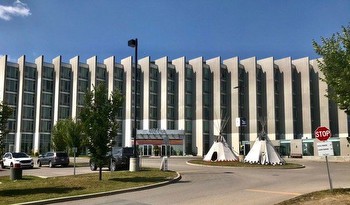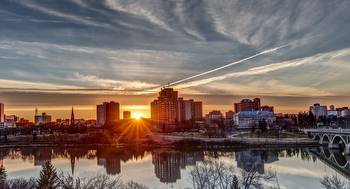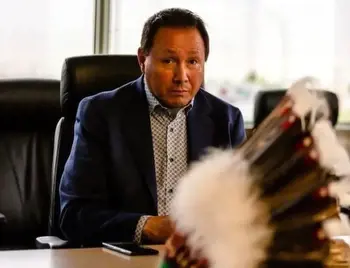FSIN, SIGA want Sask. government to reconsider closing First Nations casinos during pandemic

The organizations representing First Nations and Indigenous casinos in Saskatchewan say they feel slighted because they were given little to no consultation about the public health order that closes casinos as of Saturday.
The organizations representing First Nations and Indigenous casinos in Saskatchewan say they feel slighted because they were given little to no consultation about the public health order that closes casinos as of Saturday.
The Saskatchewan government announced new public health orders earlier this week. As of 12:01 a.m. CST Saturday, casinos and bingo halls must close, personal services such as hairdressers and tattoo parlours are reduced to half capacity, and event venues can host no more than 30 people who are seated for the whole event.
The Federation of Sovereign Indigenous Nations (FSIN), which represents 74 Saskatchewan First Nations, issued a news release Friday that said the decision to close casinos was made without consulting the First Nations organizations who operate casinos, and that the closures are unfair to First Nations and their businesses.
"[FSIN] were not given any prior notice... SIGA [Saskatchewan Indigenous Gaming Authority], on the other hand, was given two hours prior notice before the announcement. So not very much notice," FSIN Chief Bobby Cameron told CBC News.
Cameron said it's frustrating that his organization and the provincial government could not have a meeting to discuss possible recommendations or actions regarding the casinos.
SIGA implemented a mask mandate in all of its casinos a month before the provincial government imposed a mask mandate, put up signs and floor markings to direct traffic, reduced the number of available slot machines and installed plexiglass borders between machines like "a little cubicle," said Cameron.
Those restrictions result in the SIGA casinos operating at 12 per cent capacity, he said.
"Our primary competitor for the gaming entertainment are the VLTs hosted in Saskatchewan hotels, bars and restaurants. They remain open while the casinos are being closed," he said, adding that 1,000 employees will be without work.
"We simply seek a level playing field."
CBC News contacted SIGA for comment about the closures, but they deferred to FSIN, as they partnered on the news release.
"Government officials have been working with SIGA throughout the pandemic and will continue to do so in the future, as we have with many business stakeholders," a spokesperson from the provincial government told CBC News via email, when asked if there was consultation with gaming authorities generally.
"Government is committed to balancing the safety of Saskatchewan residents and protecting people's livelihoods."
SIGA, established in the 1990s, operates seven First Nations casinos in Saskatchewan. In fiscal 2019-2020, its casinos brought in $270.8 million in revenue and made a net income of $72.8 million, according to its most recently available annual report.
Half of the money goes to the First Nations Trust and is shared among Saskatchewan First Nations, 25 per cent goes toward regional community development corporations, which fund local initiatives on First Nations and the other 25 per cent is put in the Saskatchewan government's general revenue fund.
The closures are going to make a significant dent in the money going to the 74 First Nations, said Cameron, though the exact number hasn't been calculated yet.
Cameron invites the provincial government to have a video conference with FSIN and SIGA to discuss casino operations.
Dr. Saqib Shahab, Saskatchewan's chief medical health officer, will review the public health order that comes into effect Saturday in four weeks' time.































